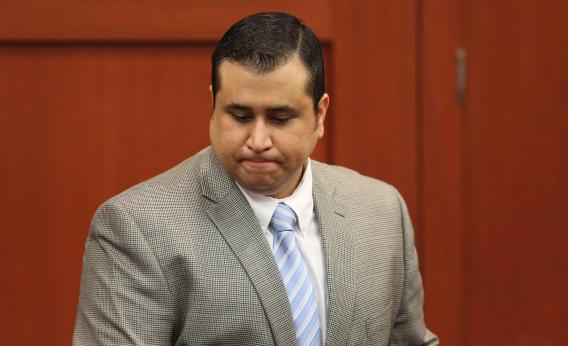Crime is Slate’s crime blog. Like us on Facebook, and follow us on Twitter @slatecrime.
On Wednesday George Zimmerman’s defense team rested its case without ever calling its client to the witness stand. While it’s not entirely surprising that the 29-year-old Zimmerman decided not to testify about the role he played in the death of teenager Trayvon Martin, it’s fair to wonder whether his silence will prejudice the jury by making it look like he has something to hide. (“If I were innocent, I would certainly want to speak up and tell my side of the story,” one can imagine a juror thinking to herself.) Could Zimmerman’s failure to speak in his own defense work to his detriment?
If so, it would be highly improper, but not uncommon. In every criminal case, before the jury begins deliberating, the judge presents explicit instructions on what jurors can and cannot consider while debating the case. One of those instructions will inevitably address the question of a defendant’s refusal to testify. The relevant instruction for Florida’s criminal courts reads, in part:
The defendant exercised a fundamental right by choosing not to be a witness in this case. You must not view this as an admission of guilt or be influenced in any way by [his] [her] decision. No juror should ever be concerned that the defendant did or did not take the witness stand to give testimony in the case.
Of course, a juror might simply disregard this instruction, or be subconsciously prejudiced by the defendant’s refusal to testify anyway. This happens fairly often—a 1998 National Law Journal poll found that more than 40 percent of potential jurors said they would think less of a defendant if he or she refused to testify. In a 2003 doctoral thesis titled “The Effect of Judicial Instructions on Jury Consideration of Defendant’s Refusal to Testify,” Victoria Zdrok described “the rebound effect,” where a judge’s instructions to ignore a defendant’s silence just ends up “further reminding the jury of the defendant’s failure to take the stand and leading to a greater bias.” Zdrok cites psychological research showing that the rebound effect is a very real thing, and notes the “ample empirical evidence demonstrating the difficulties people have ignoring or discounting information on command, blocking undesirable thoughts from entering consciousness or preventing unwanted information from influencing their judgments.”
So, yes, despite the judge’s instructions to the contrary, jurors may well be biased by Zimmerman’s refusal to testify. Would this affect the outcome of the case? That’s less clear. Ideally, the foreperson will be a conscientious sort who’ll help focus the jurors’ deliberations on the evidence they’re supposed to consider. But even if the foreperson is a slug, jurors can be biased by any number of things: the defendant’s appearance, the prosecutor’s shoes, whether the seats are too hard in the jury box. In the high-profile Zimmerman case, I’d venture that jurors are more likely to be biased by any opinions they may have formed before the trial began than by Zimmerman’s failure to testify in his own defense.
And, finally, even though the jurors might subconsciously think less of Zimmerman because of his silence, it may well have been worse for him if he would have decided to speak. When a defendant takes the stand, he enters an uncontrollable situation, opening himself up to cross-examination that could shake his composure and alibi and prove fatal to his chances for acquittal. In a 2012 Minnesota Law Review article, Ted Sampsell-Jones wrote that the “current legal system encourages criminal defendants to remain silent,” because they know that “the relative costs of taking the stand are high, and that remaining silent is a far safer option.” The trial has been going pretty well for Zimmerman so far. I suspect he and his attorneys aren’t losing any sleep over the decision to maintain his silence.
